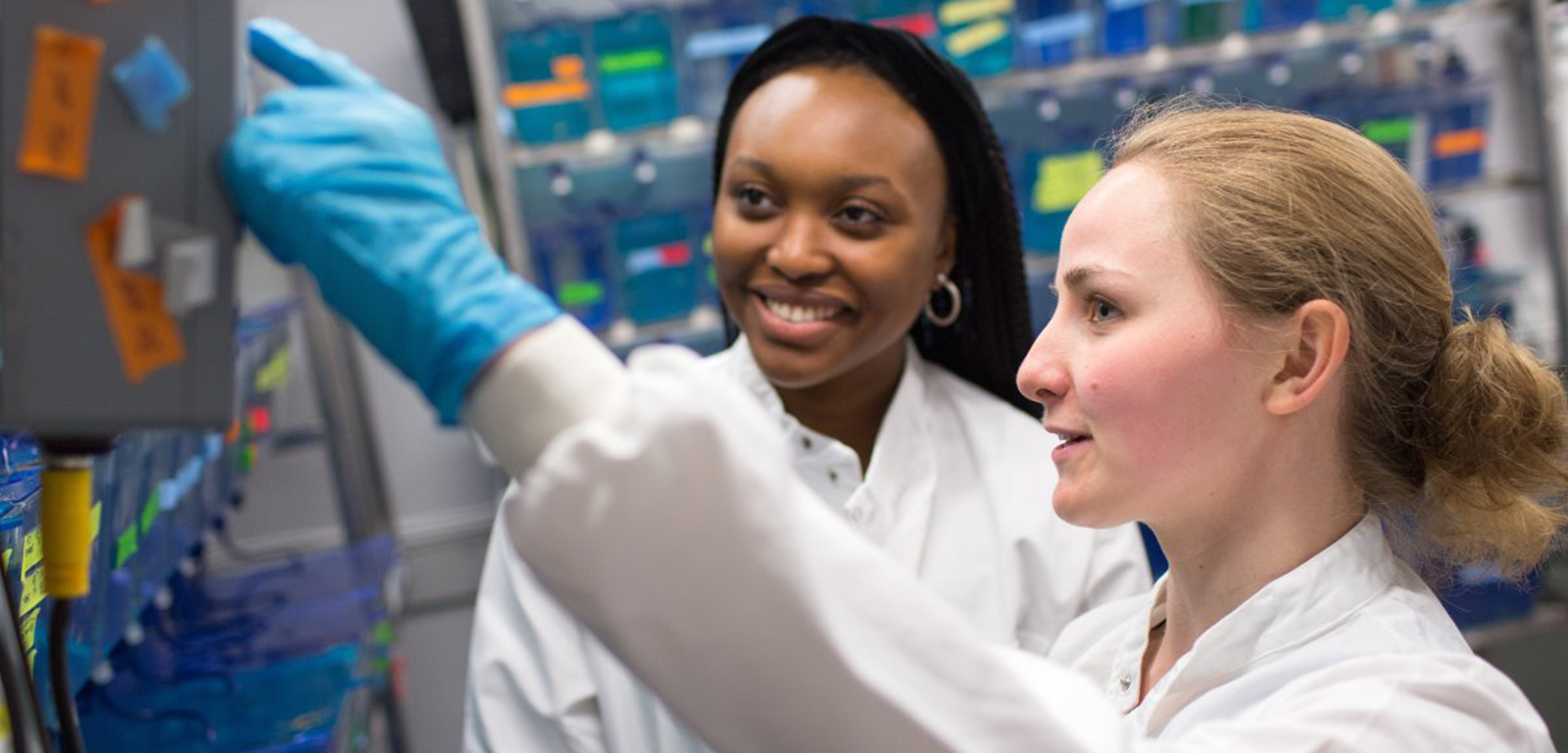

* For 2020-21, the year abroad fee was 15% of the relevant fee for that year.
IELTS 7.0 overall (minimum 6.5 in all elements)
TOEFL 100 overall (minimum 22 in all elements)
PTE 69 overall (minimum 62 in all elements)
Our biochemistry courses cover all aspects of the applied biochemistry and biotechnology industries, including commercialising technology, entrepreneurship, and intellectual property and patents, with lectures and case studies from business leaders and academics.
This degree allows you to combine your training in biochemistry with study of the French language. These classes, taught in French by the Centre for Languages, Culture and Communication, focus on the use and presentation of written and oral scientific and technical material in French.
You will also receive an introduction to the theory and practice of translation, alongside further studies in the history, politics, science and technology of French-speaking countries.
In the first two years you will cover core biochemistry modules alongside these classes, including biological chemistry, molecular biology, integrative cell biology and genes and genomics.
Our teaching is enriched by the Department’s internationally leading research programme, so you’ll be learning at the very cutting edge of the subject. You will also benefit from access to our outstanding facilities, including for genomic and cell biology studies, tissue culture suites and the most modern microscopes.
You spend your third year studying in a French-speaking university, where you will attend lectures and conduct a research project.
In your final year you have increased freedom to follow your own interests by choosing from a wide range of optional modules on topics such as synthetic biology, cancer and bioinformatics. You will also complete a substantial project or dissertation.
Please note: this course is not suitable for native or near-native French speakers.
Normally only students who are on track for at least a 2:1 by the end of their second year, will be eligible to spend their third year abroad.
More information:click here
Core modules
Year 1
Biological Chemistry
Cell Biology
Molecular Biology
Proteins and Enzymes
Year 2
Genes and Genomics
Integrative Cell Biology
Fundamentals of Molecular Biochemistry
Protein Science
Tutored Dissertation
Applied Molecular Biochemistry
Challenges in Cell Biology
Topics in Biotechnology
Year Abroad
You spend this year studying at a leading university in Lyon, Marseille, Montpellier, Paris, Strasbourg or Toulouse.
Partnerships with universities are subject to continuous review and individual partnerships may or may not be renewed.
There may be limitations placed upon your ability to live and study abroad. If applicable you will need to successfully apply for the relevant visa. This applies to all students, including Home students, in light of the vote for the United Kingdom to leave the European Union.
Year 4
Science Communication
Laboratory-based research project or literature-based dissertation
You choose one module from each group below.
Group 1
Damage and Repair in Biological Systems
Macromolecules in Three Dimensions
Medical Microbiology
Neuroscience Research
Plant Biotechnology and Development
Stem Cells, Regeneration and Ageing
Group 2
Advanced Topics in Immunity and Infection
Advanced Topics in Parasitology and Vector Biology
Cancer
Integrative Systems Biology
Mechanisms of Gene Expression
Metabolic and Network Engineering
Symbiosis, Plant Immunity and Disease
Group 3
Biodiversity Genomics
Bioinformatics
Biotechnology Applications of Proteins
Medical Glycobiology
Molecular Basis of Bacterial Infection
Synthetic Biology
Systems Neuroscience
Pre-sessional programme
Our pre-sessional programme prepares international students joining Imperial College London to study STEMM (Science, Technology, Engineering, Mathematics and Medicine) degrees.
To ensure the health of its students and staff, the College is operating remotely currently. So we have transformed our 6-week and 3-week face-to-face pre-sessional courses into courses that will be delivered and assessed remotely for summer 2020. Please note that the course dates have been brought forward to allow time for successful students to obtain a visa for entry to their main programme and/or to travel to the UK.
Our online Pre-sessional English courses can help you learn the real academic language and skills that you need for successful study at Imperial. Our 6-week and 3-week pre-sessional courses are now available online for distance learning. Our online courses are specifically designed for students studying science, technology, engineering, maths or medicine (STEMM) at Imperial. They deliver the same academic content as our face-to-face courses and are full-time and intensive.

Life sciences graduates enjoy excellent career opportunities. Most of our graduates study for a higher degree in life sciences and many follow careers in the field, particularly in the research and management areas of pharmaceuticals, biotechnology, biomedical science, food technology, agrisciences, and pest, disease and environmental management.
Similar opportunities exist for life scientists in government and independent laboratories involved in medical research, public health, forensic investigation, disease research, conservation, and pollution. Some of our graduates also go on to work in medical careers, become teachers, or even work in the media.
Recent graduates of the Department have become:
Research Officer, A*STAR, Singapore
Television Researcher, BBC
Fungicide Biochemist, Syngenta
Analyst, Deutsche Bank
PhD student, Cambridge University

Health Insurance_fee:£300/year